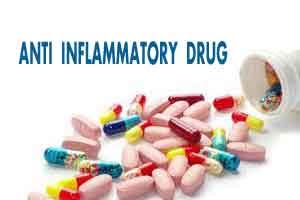- Home
- Medical news & Guidelines
- Anesthesiology
- Cardiology and CTVS
- Critical Care
- Dentistry
- Dermatology
- Diabetes and Endocrinology
- ENT
- Gastroenterology
- Medicine
- Nephrology
- Neurology
- Obstretics-Gynaecology
- Oncology
- Ophthalmology
- Orthopaedics
- Pediatrics-Neonatology
- Psychiatry
- Pulmonology
- Radiology
- Surgery
- Urology
- Laboratory Medicine
- Diet
- Nursing
- Paramedical
- Physiotherapy
- Health news
- Fact Check
- Bone Health Fact Check
- Brain Health Fact Check
- Cancer Related Fact Check
- Child Care Fact Check
- Dental and oral health fact check
- Diabetes and metabolic health fact check
- Diet and Nutrition Fact Check
- Eye and ENT Care Fact Check
- Fitness fact check
- Gut health fact check
- Heart health fact check
- Kidney health fact check
- Medical education fact check
- Men's health fact check
- Respiratory fact check
- Skin and hair care fact check
- Vaccine and Immunization fact check
- Women's health fact check
- AYUSH
- State News
- Andaman and Nicobar Islands
- Andhra Pradesh
- Arunachal Pradesh
- Assam
- Bihar
- Chandigarh
- Chattisgarh
- Dadra and Nagar Haveli
- Daman and Diu
- Delhi
- Goa
- Gujarat
- Haryana
- Himachal Pradesh
- Jammu & Kashmir
- Jharkhand
- Karnataka
- Kerala
- Ladakh
- Lakshadweep
- Madhya Pradesh
- Maharashtra
- Manipur
- Meghalaya
- Mizoram
- Nagaland
- Odisha
- Puducherry
- Punjab
- Rajasthan
- Sikkim
- Tamil Nadu
- Telangana
- Tripura
- Uttar Pradesh
- Uttrakhand
- West Bengal
- Medical Education
- Industry
Soon, anti inflammatory drug from maple syrup

Washington: A team of researchers has identified a molecule with anti inflammatory properties in maple syrup.
Arthritis and other inflammatory diseases could someday be treated with medication containing the molecule quebecol from maple syrup.
Discovered in 2011, quebecol is the result of chemical reactions during the syrup-making process that transform the naturally occurring polyphenols in maple sap. After successfully synthesizing quebecol and its derivatives, Universite Laval researchers under the supervision of Normand Voyer, a chemist with the Faculty of Science and Engineering, evaluated its anti-inflammatory properties.
They called on colleague Daniel Grenier, who developed an in vitro model for determining the anti-inflammatory potential of natural molecules. "We take blood cells called macrophages and put them with bacterial toxins," explained Professor Grenier. "Macrophages usually react by triggering an inflammatory response. But if the culture medium contains an anti-inflammatory molecule, this response is blocked."
The researchers carried out tests that showed quebecol curbs the inflammatory response of macrophages, and some derivatives are even more effective than the original molecule.
"The most powerful derivative has a simpler structure and is easier to synthesize than quebecol," said Normand Voyer. "This paves the way for a whole new class of anti-inflammatory agents, inspired by quebecol, that could compensate for the low efficacy of certain treatments while reducing the risk of side effects."
Arthritis and other inflammatory diseases could someday be treated with medication containing the molecule quebecol from maple syrup.
Discovered in 2011, quebecol is the result of chemical reactions during the syrup-making process that transform the naturally occurring polyphenols in maple sap. After successfully synthesizing quebecol and its derivatives, Universite Laval researchers under the supervision of Normand Voyer, a chemist with the Faculty of Science and Engineering, evaluated its anti-inflammatory properties.
They called on colleague Daniel Grenier, who developed an in vitro model for determining the anti-inflammatory potential of natural molecules. "We take blood cells called macrophages and put them with bacterial toxins," explained Professor Grenier. "Macrophages usually react by triggering an inflammatory response. But if the culture medium contains an anti-inflammatory molecule, this response is blocked."
The researchers carried out tests that showed quebecol curbs the inflammatory response of macrophages, and some derivatives are even more effective than the original molecule.
"The most powerful derivative has a simpler structure and is easier to synthesize than quebecol," said Normand Voyer. "This paves the way for a whole new class of anti-inflammatory agents, inspired by quebecol, that could compensate for the low efficacy of certain treatments while reducing the risk of side effects."
Next Story


